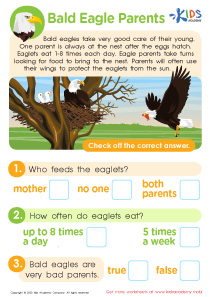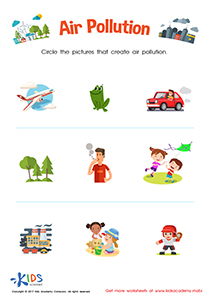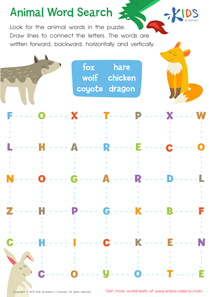Normal Pre-K Sight Words Quizzes for Ages 4-5
4 results
4 filtered results
Clear all filters4 filtered results
-
From - To
Dive into the world of reading with our Normal Pre-K Sight Words interactive assessment quizzes, specifically designed for children ages 4-5. These engaging quizzes not only test your child’s knowledge of essential sight words but also provide valuable feedback to reinforce learning. Tailored to suit young learners, our quizzes make mastering pre-K sight words a fun, interactive experience. Watch as your child picks up these foundational words, setting a strong base for their reading journey. Perfect for ages 4-5, our Normal Pre-K Sight Words quizzes are the ideal tool to boost confidence and skills in young readers.
In the vibrant world of early childhood education, the importance of laying a strong foundation in literacy cannot be overstated. As part of this critical developmental phase, recognizing and understanding sight words is pivotal for young learners. This is where our Normal Pre-K Sight Words interactive quizzes for Ages 4-5 come into play, offering an engaging and effective tool for children to enhance their reading skills.
Sight words, often also referred to as high-frequency words, are words that appear frequently in most of the text children read, but can't easily be sounded out. Learning these words is crucial because it helps young readers to become more fluent, allowing for smoother comprehension and more enjoyable reading experiences. Our Normal Pre-K Sight Words quizzes are meticulously designed to cater to the unique learning needs of children aged 4 to 5, providing them with a solid foundation in reading that will benefit them throughout their educational journey.
One of the key advantages of our interactive quizzes is their ability to make learning both fun and memorable. Through a combination of vivid visuals, engaging sound effects, and intuitive gameplay, children are encouraged to participate actively in their learning process. This interactive aspect ensures that they remain engaged and motivated, turning what could be a tedious task into an enjoyable game. This means that children are more likely to retain the sight words they learn and can recall them with ease when they encounter them in text.
Furthermore, these quizzes are designed with the understanding that each child is unique, with their own pace and style of learning. Therefore, they offer a personalized learning experience, allowing children to progress through the quizzes at their own pace. This self-paced learning ensures that children do not feel pressured or overwhelmed, which is paramount in maintaining their interest and enthusiasm for reading.
The feedback mechanism embedded in our interactive quizzes is another aspect that makes them an invaluable resource. After each quiz session, instant feedback is provided, celebrating successes and gently guiding the child towards the correct answers when mistakes are made. This immediate feedback is essential for reinforcing learning and helping children understand and correct their errors in real-time, fostering a positive and encouraging learning environment.
Moreover, the quizzes cover a comprehensive list of Normal Pre-K Sight Words for Ages 4-5, ensuring that children are exposed to a wide range of words that are pivotal at this stage of their reading development. By familiarizing themselves with these words, children are better prepared to tackle new and more challenging texts, boosting their confidence and enthusiasm for reading.
In conclusion, our Normal Pre-K Sight Words interactive quizzes for Ages 4-5 represent a key resource in the toolkit of parents, guardians, and educators aiming to support young learners in their journey to becoming proficient readers. By blending education with entertainment, these quizzes not only enhance the learning experience but also instill a love for reading that will serve children well beyond their Pre-K years.











